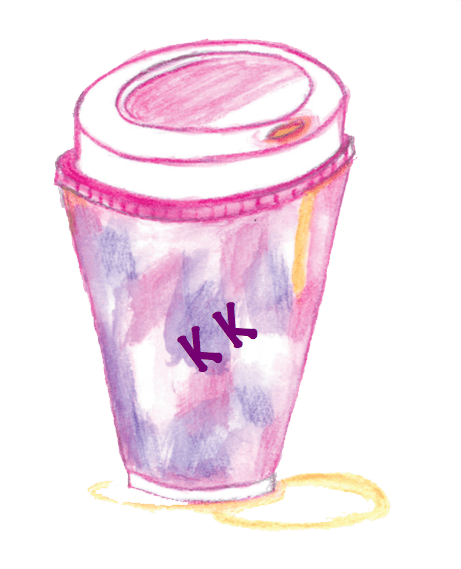Recently, I was getting a takeaway coffee with some new friends, and I had a chuckle when they were shocked that I order coffee under the name ‘KK’. For me, using the name KK, which is a nickname and my initials, is such a common, everyday occurrence that I never thought much of it. As someone who would inject coffee into their veins via IV drip if they could, my interest in using a coffee-name is solely concerned with getting caffeine as quick as possible.
The effort that it takes to say my name two or three times and spell it out, only to have the barista call it out wrong in the end, not only holds up a line but also frustrates me. Don’t get me wrong – in tutes, I will make sure the tutor has the correct pronunciation of my name, and will patiently remind them of this pronunciation right up until week 12 (a special shoutout to all the tutors who write names phonetically).
While I do use a coffee-name, I have been raised to always make sure my name is pronounced correctly. At a young age, my mum told me that a person’s name is important because it is a sound that resonates within them. My name, Kanika, means ‘first atom of creation’. My name is pronounced ‘Kahn-nik-kah’. Pronounced a different way Kanika can also mean ‘seed’ or ‘gold’. That’s why it’s a little frustrating when you tell someone your name and they reply with ‘OH! Kanika like Hanukkah!’ It seems possibly too mean to tell them that your name actually doesn’t rhyme with ‘Hanukkah’, that it’s a completely different sound. In Indian culture, a parent will choose their child’s name according to the astrological details of their birth chart. This way, the sound of one’s name is the most positive energy, a vibration that hits you throughout your life.
I do understand that a lot of the time people are trying really hard to pronounce your name right. I know it’s a little tough; I’ve grown up here and in Singapore, where Kanika is not a common name. Even in India, people pronounce my name wrong: ‘kan-nee-kah’ is another interpretation. Weirdly enough, I’ve had the most success in Thailand, where Kanika is a type of flower, and in Spain, where it’s similar to the word marble.
People know names are important. I know my name is important. It is an inherent part of my identity and something that I am really proud of. As a child, I hated that I didn’t have a typical Aussie name, and I hated that I had to say it several times for it to be repeated back to me wrong, yet again. But as I’ve grown up, I come to understand that my name is who I am, and everyone really is trying their best, it just takes a couple of tries. At the end of the day, baristas are trying their hardest, and I just want my coffee as fast as possible.
We acknowledge the Ngunnawal and Ngambri people, who are the Traditional Custodians of the land on which Woroni, Woroni Radio and Woroni TV are created, edited, published, printed and distributed. We pay our respects to Elders past and present. We acknowledge that the name Woroni was taken from the Wadi Wadi Nation without permission, and we are striving to do better for future reconciliation.
